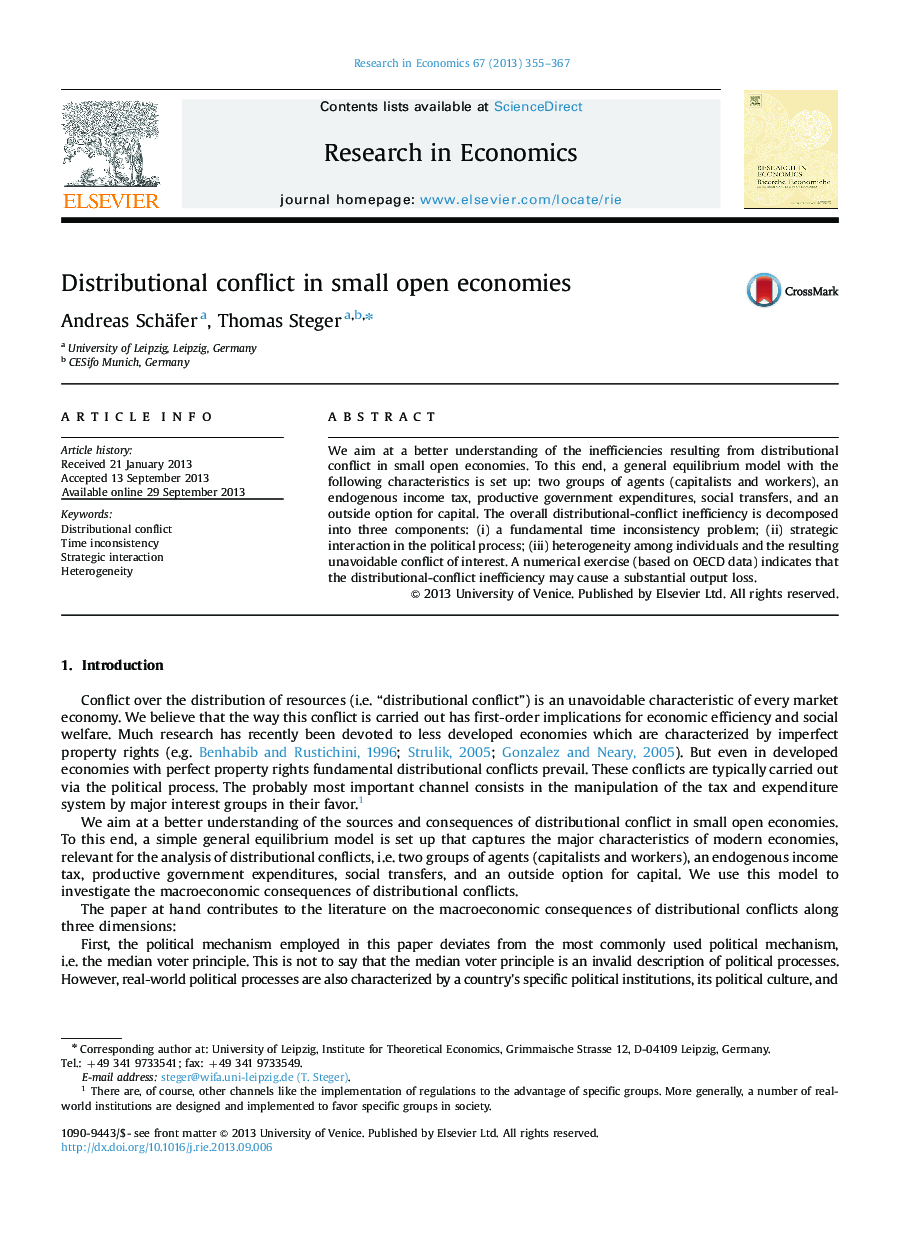| Article ID | Journal | Published Year | Pages | File Type |
|---|---|---|---|---|
| 984543 | Research in Economics | 2013 | 13 Pages |
•A simple general equilibrium model is employed to investigate distributional conflict inefficiencies in small open economies.•The overall inefficiency is decomposed into three components.•These are associated with: (i) time inconsistency; (ii) strategic political interaction; (iii) heterogeneity among individuals.•A numerical exercise indicates that the overall distributional-conflict inefficiency may cause a substantial output loss.
We aim at a better understanding of the inefficiencies resulting from distributional conflict in small open economies. To this end, a general equilibrium model with the following characteristics is set up: two groups of agents (capitalists and workers), an endogenous income tax, productive government expenditures, social transfers, and an outside option for capital. The overall distributional-conflict inefficiency is decomposed into three components: (i) a fundamental time inconsistency problem; (ii) strategic interaction in the political process; (iii) heterogeneity among individuals and the resulting unavoidable conflict of interest. A numerical exercise (based on OECD data) indicates that the distributional-conflict inefficiency may cause a substantial output loss.
